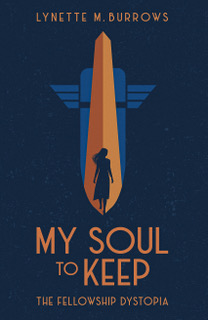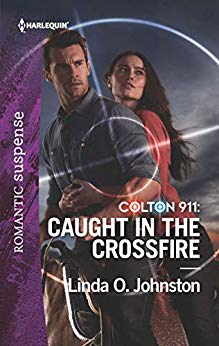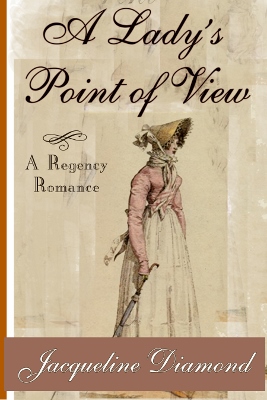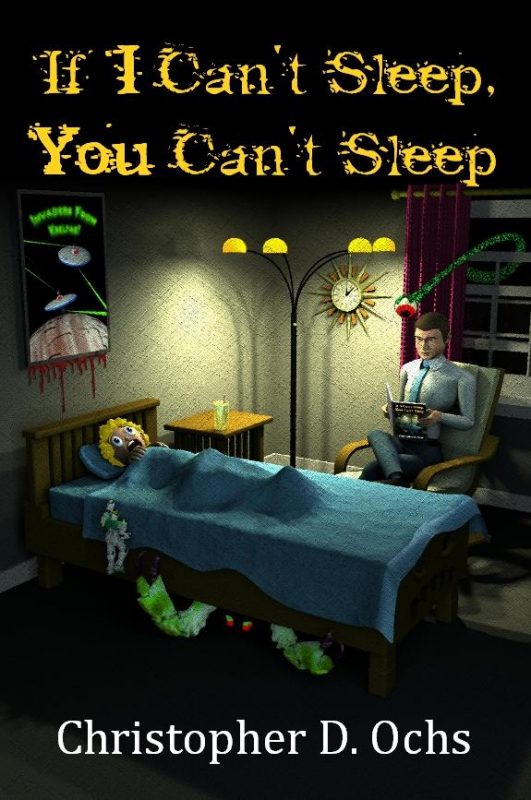Is Your ‘Plate’ Too Full? by @Rebecca_Forster
November 15, 2017 by Rebecca Forster in category The Write Way by Maureen Child tagged as Craft, editing, solutions, writing Today my November plate is officially too full.
Today my November plate is officially too full.
It has been piled high with cold, flu conferences, a last minute, out of country speaking engagement and now a medical screening that needs a follow-up. Of course, there are also everyday things that pile on to the plate: bills, calls from my sons, the tennis league I belong to, dinner to cook and bathrooms to clean. I’m not complaining. This is all just life and good stuff if you take the cold and medical appointments out of the equation. Still, filling out my calendar and trying to figure out how I’m going to fit quality writing time in the schedule made me think about the craft of writing a novel. The question on my mind was how much is too much before a reader throws up her hands and pushes the literary plate away?
As a thriller writer, I love to go over the top. Unfortunately, I can get a bit too energetic and take the technique to crazy extremes. It’s a fault. No, it’s worse than a fault. It’s a sin to be so involved with own words that I forget my job is to entertain not challenge someone to wade through my excesses. When I do go overboard, I am giving my readers a reason to push away the literary plate I have served them.
Luckily, there are remedies for ‘too much’ writers like me. In real life we say no to many things, so let’s start saying it in our fiction. Here are three ways to figure out if you just served your reader a plate that is too full.
[tweetshare tweet=”Three ways to figure out if you just served your reader a ‘plate’ too full by @Rebecca_Forster” username=”A_SliceofOrange”]
Echo: A particularly inspired turn of phrase, description or character quirk is a thing of beauty. Constant use of the same phrase or description or a continual reminder of the quirk is an annoyance. Readers are smart and imaginative. They will get it.
Blow-by-Blow : No pun intended, but sex scenes are more effective and dramatic if they are evocative rather than clinical. The same rule of thumb applies to shootouts, character travel or any scene that stops the reader and forces them to linger without a point. Move the story forward using varied sentence structure and only critical physical descriptions.
Cast of Thousands: Have you ever tried to find a friend in a crowd? It’s impossible because all you can see is a blur of humanity. The same thing happens to a reader if there are too many characters populating your book. Think of your book as a play. Characters may come and go but the ones we care about should always be center stage.
While you edit look for the echo, the blow-by-blow and the cast of characters and adjust the emphasis, streamline the structure and your literary plate will go from too full to too fabulous.
Rebecca
Monty Hall & Me by Rebecca Forster @Rebecca_Forster
October 15, 2017 by Rebecca Forster in category The Write Life by Rebecca Forster, Writing tagged as children, Family, game shows, inspiration, life choices, Life Lessons, Monty Hall, television, writing inspiration “This is a story about Monty Hall, the velvet-voiced, handsome host of Let’s Make a Deal. He passed away recently and it broke my heart because Monty Hall and I had a history.
“This is a story about Monty Hall, the velvet-voiced, handsome host of Let’s Make a Deal. He passed away recently and it broke my heart because Monty Hall and I had a history.
I was a little depressed after I had my first baby and longing to get back to ‘the real world’ when I saw an ad: be a contestant on Let’s Make a Deal. Contestants were supposed to dress up as something funny but there was nothing funny about a postpartum mommy body so I went for the sympathy angle. I cut up a crib mobile made of fabric hearts, sewed the hearts onto a white hat and made a sign that said: HAVE A HEART, LET’S MAKE A DEAL. The neighbor watched the baby and I drove to Hollywood where two hundred people were lined up against a chain-linked fence outside the studio. They were dressed like alligators, killer clowns and French maids. I joined the fray just as a young producer trolled the line, pointing at people.
“You. You. You. That’s it for today. Come back another time.”
OMG! He didn’t pick me. There I was literally wearing my heart – okay, not on my sleeve – but all over me. I threw myself at him. I grabbed his sleeve. I begged.
“I NEEEEDDDDDD TO GET IN THAT STUDIO! I JUST HAD A BABY.”
He let me in.
Once inside, the producers advised us to make eye contact with Monty Hall. Check. No matter where he went my eyes bored into him. He itched, he freaked, he couldn’t figure out where the laser points of focus were coming from and he kept looking for the source. Then he saw me the crazy, desperate lady in the white hat with dancing hearts on it. I think he chose me just to make me stop glaring at him. I got all the way to the big deal and lost, but that was fine. My consolation prize was a two-week trip to the Bahamas and a thousand dollars. I went home happy. Monty Hall probably went home and had nightmares for weeks.
Fast-forward 32 years. Monty Hall is sitting behind my family and me in the theater. He is a little stooped, silver-haired, but still handsome. When my family goes to stretch their legs, I introduce myself and tell him the story that has become a legend in our family. He is gracious. He chats with me until the house lights dim. Before we take our seats, he asks:
“How old is the baby now?” As if on cue, my thirty-two-year-old son walked down the aisle. They shook hands. The house lights went down. We all watched the end of the play. I gave my son’s hand a squeeze. Life was good.
As if on cue, my thirty-year-old son walks down the aisle. They shake hands. The house lights go down. We watch the end of the play. I give my son’s hand a squeeze. Monty Hall walks out of the theater ahead of us and I never see him again.
The moral of the story is this: choose a door, any door but choose. What is behind that door will be exciting or surprising, charming or even challenging, but you will be better for turning the knob.
Monty Hall was behind two of my life’s doors. He made me feel lucky once and honored the second time. TY Monte Hall. I know that the door that opened for you not so long ago will be the biggest deal of all and you deserve that heavenly prize.
P.S. That is not me in the picture.
0 0 Read moreStories My Mother Told Me
September 14, 2017 by Rebecca Forster in category Writing tagged as Craft, experience, Family, life, mother, writingMy mother will be 93 years old on September 21. She travels with me, reads all my books and is my best friend. I wrote this blog some time ago, but I want to share it again because it deserve repeating that she is an amazing woman. I am so proud of my mom. Happy birthday, mom.
_________

Mom at 92
My parents made a pact to stand on every continent in the world. When my dad passed away, my mother went to the Antarctic for both of them. That’s when I figured there was a lot I didn’t know about mom.
When she returned with a bright orange jacket that she got ‘for free’ (don’t count the cost of the cruise) she had lots of stories to tell. Yet, when the excitement of the trip wore off, we both had the sense that we were still standing on a pitching deck with no way to get to calm seas. A big piece of the puzzle – my dad – was missing.
“Write your memoir,” I said.
“My life wasn’t interesting,” she answered.
But the idea must have taken hold. Not long after this conversation, she called. She was done with her memoir.
“Impressive,” I mused.
It took me months to write a novel and she finished hers in a week. Then I saw why. Her ‘manuscript’ was five pages long and she was eighty-five years old. There had to be more.
And so began a year of weekend sleep-overs as we poured over photographs for inspiration. She had twenty beautifully documented photo albums, a box with pictures when cameras were still a new fangled thing.
There was mom wearing waist-length braids and Mary Jane shoes standing in the Germany village she called home.
She was a teenager in the U.S. while war raged in Europe, catching up the grandmother she had lived with, cousins and friends.
There was my mom posing in a swimsuit she bought with the dollar she found on the street.
Mom in her twenty-five dollar bridal gown perched in the back of a hay wagon beside my father, a skinny, wide-eyed farm boy who would become a doctor.
Mom with one child. Two. Three. Five. Six of us all together. Dark haired and big eyed we were her clones dressed in beautiful, homemade clothes. I remember going to sleep to the sound of her sewing machine.
And there were words! I bribed my mother with promises of Taco Bell feasts if she gave me details. Funny, what came to her mind.
To keep body and soul together when my father was in med school, he was a professional mourner and bussed tables for a wealthy fraternity. My mom worked in a medical lab where the unchecked radiation caused her to lose her first baby. They ate lab rabbits that had given their all for pregnancy tests. They were in love and happy and didn’t know they were poor. But St. Louis was cold, she remembered, and they couldn’t afford winter coats. Still, she insisted, they weren’t poor. I listened and knew they were happy.
She typed, I edited; I typed, she talked. My youngest brother almost died when he was 10. She didn’t cry for a long while; not until she knew he would live. The captain of the ship that took her back to Germany was kind. She dreamed of becoming a missionary doctor. In 1954, she had two toddlers (me and my brother) and another baby on the way when she and dad drove to Fairbanks, Alaska where he would serve his residency at the pleasure of the U.S. Air Force. Her favorite outfit was a suit with a white collar. She loved her long hair rolled at her neck in the forties. In the fifties she made a black dress with rhinestone straps and her hair was bobbed. In the sixties, she made palazzo pants and sported a short bouffant. She looked like a movie star in her homemade clothes. I wanted to grow up to be as glamorous as she was. She still thought she wasn’t interesting.
Mom wrote the forward to her memoir herself. It began:
A great sense of loneliness fills the house as twilight approaches. In the silence, I can almost hear the voices of my grown children as they recall their childhood years, the laughter of grandchildren and the quiet conversations of friends who have gathered here in years past, echoing through the empty rooms.
You see, she really had no need of my help as a writer.
We had seven copies printed with a beautiful cover of a sunset. She called the book In The Twilight of My Life and would not be swayed to change it. Mom thought it perfect and not the least depressing. It was, she laughed, exactly right. It was the laugh that made it right. She gave my brothers and sisters a copy for Christmas. My older brother had tears in his eyes. Everyone exclaimed: “I never knew that”.
Now I have a book more treasured than any I have written. I learned a lot about my mom and I realized why I create fictional women of courage and conviction, strength and curiosity, intelligence and, most of all, spirit. It’s because, all this time, I’ve been writing about my mother.
4 0 Read more
STUMPED
August 15, 2017 by Rebecca Forster in category The Write Life by Rebecca Forster, Writing tagged as building, challenges, inspiration, write life, Writer, writing
The other day I came home to find the men I hired to build my patio sitting in my backyard looking at a stump. This was not a normal stump. This was a giant. Paul Bunyan, Big John kind of stump. I sat down with them and I, too, considered the stump.
“George had to get his chain saw for that sucker,” one of them finally said.
“Took two hours to get it out,” another offered.
“I think it broke George’s saw,” the first chimed in.
“Why didn’t you leave it in the ground,” I asked. “You know, pour the cement around it?”
“We thought about it,” the third said. “It wouldn’t have been right.”
They told me that they had managed to cut it up into the piece we were looking at but that it had been twice as big and buried deep in the ground; a remnant of a primordial tree. Their task had been Herculean. They told me that if they poured the cement over the stump, the darn thing could rot and my steps would fall in, and I would be upset with them because they had poured cement over a stump the size of San Francisco.
“It looks petrified,” I said. “How many years do you think it would take to rot?”
The first guy shrugged, “Twenty. Thirty years.”
I shrugged back. I would probably be dead by the time the stump rotted and my stairs fell in. I guess it was the principal of the thing. They would have known the stump was there.
We sat in the hot sun a while longer. Someone suggested carving the stump into the likeness of the contractor. I liked that idea but no one knew how to carve. I thought we could make it into a table. Eventually, we all stopped looking at the stump. The men moved it out of the way and started work again; I went inside to make dinner.
That stump has now been in my backyard for months. I can’t bring myself to get rid of it. But, like all things that are hard to get rid of, it eventually served a purpose. It taught me a few lessons:
1) Everybody has a stump. It might be in your real backyard, your professional backyard or your personal backyard, but it is undoubtedly there.
2) What you do with your stump will tell you a lot about yourself. Either you will dig it up and deal with it, or you will leave it to rot.
3) If you’re stumped and need help there is always someone willing to work hard with you to take care of it as long as you work as hard as they do.
4) You can never go through a stump but don’t panic. You can go around them, over them and sometimes even under them but that takes the longest.
5) Sometimes stumps are not as big as they look and sometimes they are bigger. Size doesn’t matter. Stumped is stumped.
6) Removing a stump but choosing to keep it as a reminder of what stood in your way is a good thing. When you look at it, you will always know that when it came to you against the stump, you won.

Contact me: http://rebeccaforster.com/
Subscribe and get my 2-book starter library FREE:
Follow me on Bookbub!
Follow me on Facebook
Follow me on Twitter
1 0 Read more
Stop! 10 Things Writers Shouldn’t Do
July 15, 2017 by Rebecca Forster in category The Write Life by Rebecca Forster, Writing tagged as inspiration, lessons, rules, writing
DON’T EVER. . .
 1.Stop Reading: After a long day of writing, the last thing you want to do is pick up someone else’s book – do it anyway. It will help you relax and keep you motivated – not to mention you might pick up a few literary tricks along the way
1.Stop Reading: After a long day of writing, the last thing you want to do is pick up someone else’s book – do it anyway. It will help you relax and keep you motivated – not to mention you might pick up a few literary tricks along the way
2. Rely on Inspiration: Inspiration is a contact sport. Pound the keys, search the web for topics that are compatible with your story, be proactive about inspiration.
3. Veer From Your Genre: So you want to write the first science fiction, erotic, mystery, romance? Don’t do it. If you want passionate and engaged readers make sure your book can be defined.
4. Get Boring: If you’re bored writing your book chances are that your readers will be bored reading it. Take your book to the top and then go over it. Conflict moves stories.
5. Default to Perfection: Men are fearless, women are sexy and everyone is just too cool for school. Readers want to relate to your characters – imperfections, shortcomings and all.
6. Lose the Through Line: Remember what story you’re writing. If you started out writing about a girl torn between her family and a soldier she loves, don’t go off into political discourse about war.
7. Be Afraid to Cut, Cut, Cut: Cut close to the bone and let the reader see the skeleton of your book instead of burying her in unnecessary description or dialogue. Let a reader’s imagination fill in the rest.
8. Throw in the Towel: The easiest thing in the world is starting a book; the hardest thing is finishing one. The cool thing is that you can do it with just an ounce more determination and patience. Yes, an ounce.
9. Don’t Do it Alone: For some writers a critique group works. For others it’s one trusted voice cheering them on. Writers may live with their fictional characters, but they thrive with a friend(s) who believes in them.
10. Beat Yourself Up: The book isn’t shaping up the way you want? Someone read a chapter and didn’t care for it? Feel like jumping off a cliff? You can spend your time beating yourself up, or beating the keys on your computer. Beat the keys and show the world what you’re made of. We’re all waiting for your book.
2 0 Read more
Affiliate Links
A Slice of Orange is an affiliate with some of the booksellers listed on this website, including Barnes & Nobel, Books A Million, iBooks, Kobo, and Smashwords. This means A Slice of Orange may earn a small advertising fee from sales made through the links used on this website. There are reminders of these affiliate links on the pages for individual books.
Search A Slice of Orange
Find a Column
Archives
Featured Books
MY SOUL TO KEEP
Miranda has three days until she must surrender control of her own life forever.
More info →
COLTON 911: CAUGHT IN THE CROSSFIRE
From hunting cattle rustlers
To being hunted by a killer
A LADY’S POINT OF VIEW
Being nearsighted in Regency London isn’t a crime—but it feels like one to a lady in disgrace.
More info →IF I CAN’T SLEEP, YOU CAN’T SLEEP
Disturbed and Disturbing Bedtime Reading to Inflict on Naughty Children . . . Of All Ages
Five fairy tales and five short stories to perplex and disturb!
Newsletter
Contributing Authors
Search A Slice of Orange
Find a Column
Archives
Authors in the Bookstore
- A. E. Decker
- A. J. Scudiere
- A.J. Sidransky
- A.M. Roark
- Abby Collette
- Alanna Lucus
- Albert Marrin
- Alice Duncan
- Alina K. Field
- Alison Green Myers
- Andi Lawrencovna
- Andrew C Raiford
- Angela Pryce
- Aviva Vaughn
- Barbara Ankrum
- Bethlehem Writers Group, LLC
- Carol L. Wright
- Celeste Barclay
- Christina Alexandra
- Christopher D. Ochs
- Claire Davon
- Claire Naden
- Courtnee Turner Hoyle
- Courtney Annicchiarico
- D. Lieber
- Daniel V. Meier Jr.
- Debra Dixon
- Debra H. Goldstein
- Debra Holland
- Dee Ann Palmer
- Denise M. Colby
- Diane Benefiel
- Diane Sismour
- Dianna Sinovic
- DT Krippene
- E.B. Dawson
- Emilie Dallaire
- Emily Brightwell
- Emily PW Murphy
- Fae Rowen
- Faith L. Justice
- Frances Amati
- Geralyn Corcillo
- Glynnis Campbell
- Greg Jolley
- H. O. Charles
- Jaclyn Roché
- Jacqueline Diamond
- Janet Lynn and Will Zeilinger
- Jaya Mehta
- Jeannine Atkins
- Jeff Baird
- Jenna Barwin
- Jenne Kern
- Jennifer D. Bokal
- Jennifer Lyon
- Jerome W. McFadden
- Jill Piscitello
- Jina Bacarr
- Jo A. Hiestand
- Jodi Bogert
- Jolina Petersheim
- Jonathan Maberry
- Joy Allyson
- Judy Duarte
- Justin Murphy
- Justine Davis
- Kat Martin
- Kidd Wadsworth
- Kitty Bucholtz
- Kristy Tate
- Larry Deibert
- Larry Hamilton
- Laura Drake
- Laurie Stevens
- Leslie Knowles
- Li-Ying Lundquist
- Linda Carroll-Bradd
- Linda Lappin
- Linda McLaughlin
- Linda O. Johnston
- Lisa Preston
- Lolo Paige
- Loran Holt
- Lynette M. Burrows
- Lyssa Kay Adams
- Madeline Ash
- Margarita Engle
- Marguerite Quantaine
- Marianne H. Donley
- Mary Castillo
- Maureen Klovers
- Megan Haskell
- Melanie Waterbury
- Melisa Rivero
- Melissa Chambers
- Melodie Winawer
- Meriam Wilhelm
- Mikel J. Wilson
- Mindy Neff
- Monica McCabe
- Nancy Brashear
- Neetu Malik
- Nikki Prince
- Once Upon Anthologies
- Paula Gail Benson
- Penny Reid
- Peter J Barbour
- Priscilla Oliveras
- R. H. Kohno
- Rachel Hailey
- Ralph Hieb
- Ramcy Diek
- Ransom Stephens
- Rebecca Forster
- Renae Wrich
- Roxy Matthews
- Ryder Hunte Clancy
- Sally Paradysz
- Sheila Colón-Bagley
- Simone de Muñoz
- Sophie Barnes
- Susan Kaye Quinn
- Susan Lynn Meyer
- Susan Squires
- T. D. Fox
- Tara C. Allred
- Tara Lain
- Tari Lynn Jewett
- Terri Osburn
- Tracy Reed
- Vera Jane Cook
- Vicki Crum
- Writing Something Romantic
Affiliate Links
A Slice of Orange is an affiliate with some of the booksellers listed on this website, including Barnes & Nobel, Books A Million, iBooks, Kobo, and Smashwords. This means A Slice of Orange may earn a small advertising fee from sales made through the links used on this website. There are reminders of these affiliate links on the pages for individual books.


















































